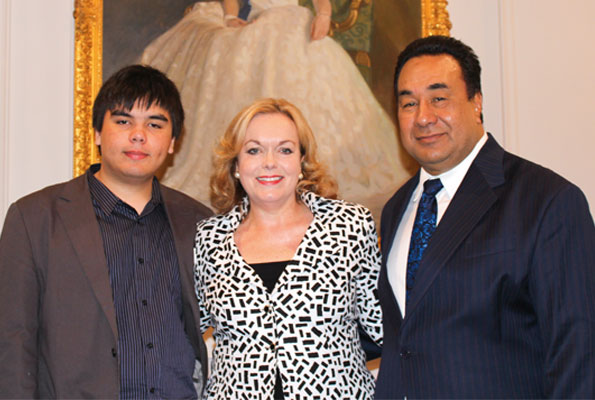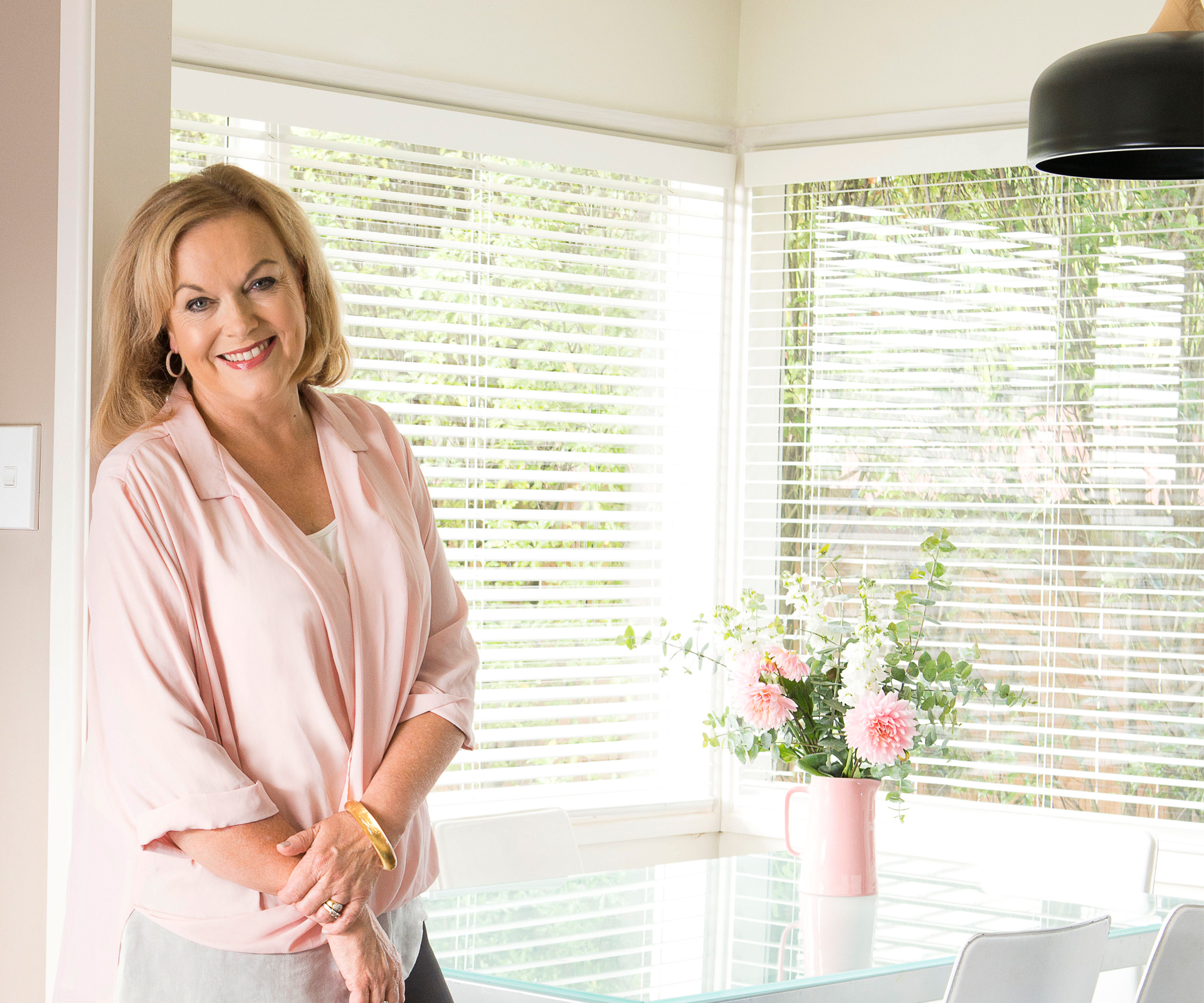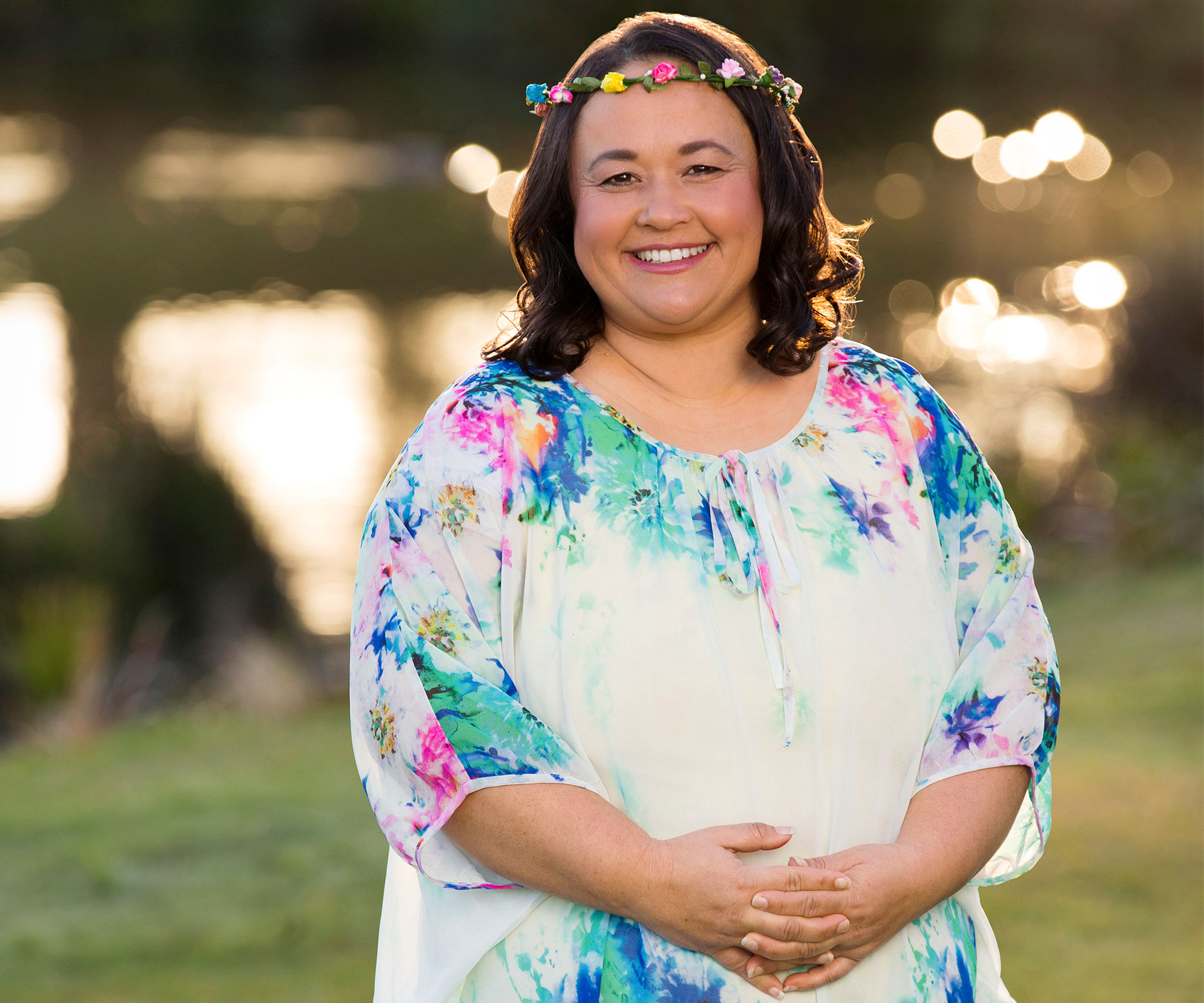We share a hairdresser, Judith Collins and I. It was Belinda who suggested I call Judith for an interview.
“She’ll surprise you,” she said. “She’s so different to the woman you see on the TV news.”
Judith’s tall, handsome, 23-year-old son James greets me at the door to their St Heliers home. He offers to carry my bag up the stairs, every inch the gentleman.
Judith has thoughtfully placed a bowl of fresh blueberries and some nuts on the coffee table between us.
“I thought you would probably be a healthy eater,” she says with a grin.
I had to confess to downing an enormous piece of caramel slice just minutes earlier. She then told me about her prowess with cheesecake … apparently hers is legendary. We bonded over our excesses.
Judith ‘Crusher’ Collins, Minister of Corrections and Police, lives in a modern antique-filled home with a view through the treetops to the sea. The ‘Crusher’ moniker came about when she decided that the cars of boy racers should be crushed if they continued to race on the open road after a series of warnings.
“I’m the minister who brought back deterrence,” she has been known to say proudly.
Her hard-line approach seems to have paid off. Deaths and injuries have fallen dramatically since the measure was introduced.
Judith Anne Collins was born 57 years ago in the central Waikato settlement of Walton to dairy farmers Percy and Jessie Collins. She is the youngest, by seven years, of six children. “Mum used to call me her baby sent from heaven” – she smiles and rolls her eyes at the same time.
“I thought my parents could do no wrong. Dad used to take me everywhere.”
Percy and Jessie Collins were children of the Depression. They’d grown up poor and knew the value of hard work.
“They were honest and frank and hardworking. Dad was still milking the cows until four weeks before he died. The worst possible insult in our family was to be called lazy,” Judith remembers. “You’d be letting everyone down if that was the case.”
Like many fathers in the Collins circle, Percy had served his country during the war. He was a regular at the local RSA on a Friday night. He didn’t talk much about his wartime experiences but they had obviously left their mark on him.
“He would wake up every night at 2am and would sit at the kitchen table smoking, with a pot of tea, listening to 1YA,” Judith recalls.
“I remember thinking when I went to stay with my friends whose fathers hadn’t been to war, that there was a lightness in their families that I didn’t have in mine.”
Judith was previously Minister for Veterans’ Affairs. She now understands the very real impact of post traumatic stress.
One of her most treasured childhood memories is of being read to by her father. Percy had initially not understood the value of reading to very young children. He happened to go to a PTA evening at the local school to hear a visiting American academic speak on the subject.
“When he came home and read to me, he was amazed that I responded. (She was two at the time). She never looked back.

Judith with son James and husband David.
“It was a game changer,” Judith tells me.
Those early days spent cuddled up reading with her parents set her up for a lifetime of learning. The Collins family holidayed together twice a year. Once in May, because the cows weren’t being milked then.
“We’d take a week and drive around the North Island staying in hotels for a night in each place.”
And then in January Jessie would take the children to Mount Maunganui to stay in the Windsor Flats, a collection of cabins next to the beach.
“It’s a car park now,” Judith says with a laugh. “We’d have to sit on the beach every day in all weathers to get our money’s worth!”
Judith was your classic high achiever at school.
“I used to hate the school holidays. Six weeks with nothing to do. I was so bored.”
That’s definitely not a problem now. As well as holding down two demanding ministerial posts, not to mention being the busy MP for Papakura and a wife and mother, she is also halfway through a post-graduate diploma in health and safety. She began the course shortly after resigning as a minister back in 2014, over suggestions that she had been deliberately undermining the Serious Fraud Office CEO, Adam Feeley. (She was subsequently cleared of wrongdoing by a judicial inquiry.)
While consigned to the back benches of Parliament she says she began to feel “a bit under-utilised and rejected. So I did what I always do. I went back to study.”
Her fellow students were taken aback to find her in their class.
“They were surprised that I was a human being,” she laughs.
The most hurtful thing during “the troubles” as she calls them, when she was hitting the headlines for all the wrong reasons, was losing her honorific. The Honourable Judith Collins was deemed unworthy of the title ‘Honourable’.
“That really hurt, but I decided not to be negative about it. I knew I’d get it back.”
And she did, after being reinstated as a minister in December 2015.
“I put all my energies into it. I think I value that honorific more than anyone [else in parliament] because I lost it and got it back.”
Judith keeps her family close. Her son James is an only child and is at Auckland University finishing a commerce degree. Judith shares the dreams of most mothers: “I want him to have a happy life. I want him to have a full life and to add value.”
Her husband, David Wong Tung, was born in Samoa and emigrated to New Zealand as a child. Judith met him at a student party.
“He was different, tall, handsome, confident,” she remembers. “He wasn’t a boy. He was a man.”
She was just 20 at the time, David 24. Then a policeman, he was also, like Judith, working his way through a law degree. Their relationship caused consternation at home on the Waikato farm. Judith’s dad was not happy. He had plans for his daughter and they didn’t include David.
“It was the first time I doubted that my father knew everything,” she tells me wryly. “He made the classic mistake of telling me not to do something.”
Which of course made her do the complete opposite, determined woman that she is. Judith and David have just celebrated their 31st wedding anniversary.
It may come as a surprise to know that this staunchly National politician was once a Labour Party supporter.
“That was the way my parents brought me up,” Judith explains. “They were left wingers.”
So what changed?
“David and I had a partnership in an Italian restaurant in Auckland. Our partner, the chef, sacked someone for dropping something. The incident escalated into an employment dispute. Before we knew it there were pickets outside the restaurant.
“That’s when I saw rent-a-mob for the first time,” Judith explains. “We were targeted because I was a lawyer and my husband was a policeman. We had borrowed every cent to go into that restaurant, at 27 per cent interest, and these people were ruining us.”
It was a pivotal moment for them both.

Judith is known for her tough approach in Parliament
Judith ran her own law practice for 10 years before entering politics. The reason she branched out into her own practice might also surprise you.
“I was desperate to have a beautiful Plunket book for my son. I wanted to have it all perfectly filled out and I really didn’t want to be made to feel guilty about taking time off work to take him to Plunket appointments.”
She was pretty much a one-woman band in ‘Judith Collins and Associates’. She found it lonely and missed being able to bounce ideas off other people. As luck would have it, the Auckland Law Society was looking for volunteers. Judith joined their complaints committee.
“I learned a lot and found I could add value, so I stood for council of the Auckland Society and eventually became its youngest ever president in 1998.”
She went on to campaign for president of the New Zealand Law Society but was defeated.
“That taught me that sometimes when you lose, you win. It’s really only from your failures that you learn.”
The defeat meant she was available for other opportunities and in the 2002 election she was approached to stand for the National Party.
“I knew National was going to lose. Everyone else was running away… that’s the time to get involved.”
And that’s the woman that she is. Feisty, determined, courageous, strong. But she is also the type of person who cares deeply about her son’s Plunket book, who defied the father she worshipped to marry the man she loved, and who goes to the trouble of finding fresh blueberries for a visiting journalist.


